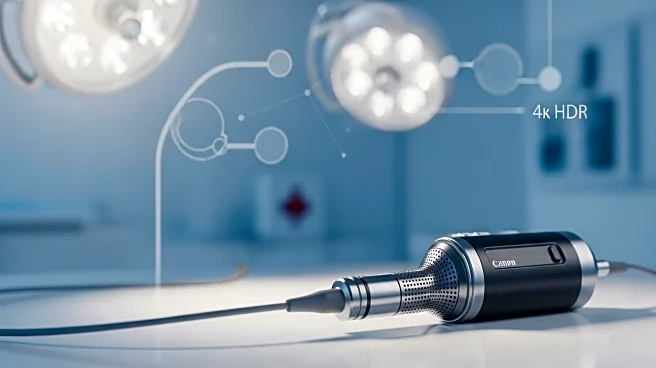What's Happening?
Johnson & Johnson has announced its decision to cease sales of its Linx gastroesophageal reflux disease (GERD) treatment in certain countries. This decision follows a comprehensive review of market conditions, as stated by the company. The Linx device, which consists of a flexible ring of small magnets placed around the lower esophageal sphincter, is designed to prevent acid reflux by keeping the sphincter closed. Despite the withdrawal, the company assures that the safety and efficacy of the Linx device remain unchanged. The move is part of J&J's strategy to focus on areas with high unmet patient needs and to advance innovative technologies. The company has not disclosed the specific countries affected or the timeline for the withdrawal.
Why It's Important?
The withdrawal of the Linx device from certain markets could have significant implications for patients suffering from GERD, a severe form of acid reflux. Johnson & Johnson's decision reflects a strategic shift in its surgical technologies portfolio, potentially affecting healthcare providers and patients relying on this treatment. The move may also influence market dynamics, as competitors could seek to fill the void left by J&J's exit. Additionally, the decision underscores the importance of market evaluations in shaping healthcare offerings, highlighting the need for companies to adapt to changing conditions to maintain operational agility.
What's Next?
While Johnson & Johnson has not specified the countries or timeline for the withdrawal, healthcare providers and patients in affected regions may need to explore alternative treatments for GERD. The company's focus on innovative technologies suggests potential future developments in its surgical portfolio, which could lead to new treatment options. Stakeholders, including healthcare professionals and patients, will likely monitor J&J's next steps closely, as the company continues to evaluate its market presence and technological advancements.









